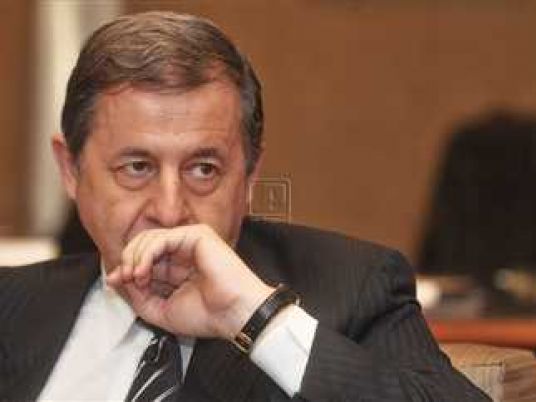Both state-owned and independent newspapers lead with news of the wheat crisis.
“Egypt has adequate stocks of local and imported wheat for the next four months,” Minister of Trade and Industry Rachid Mohamed Rachid said, according to Al-Dostour, independent newspaper. The minister also announced that Russia’s ban on exporting wheat will not affect Egypt.
The wheat crisis emerged when the Russian government decided to halt the export of wheat to Egypt due to a drought that has affected Black Sea countries and Canada.
However, after an emergency meeting, the minister announced that the state’s budget for the fiscal year of 2010/11 will be negatively impacted, by between LE2.5 billion to LE4 billion. Consequently, Egypt demanded discussion on a reschedule of the delivery of 540,000 tons of wheat, which the two countries agreed upon before Russian’s ban.
In its coverage of the same issue, Al-Ahram state-owned newspaper leads with the headline “Strategic stock of wheat safe and import source diversification policies.” It reports that the global wheat production for this year is three percent lower than in 2009.
According to Al-Ahram, Egypt received 17 proposals for importing wheat from different countries, including millions of tons of French, American and Canadian wheat. So far, according to Rachid, Egypt has signed a contract for 240,000 tons of wheat from France, which is expected to be imported during the beginning of September.
Al-Wafd, opposition party newspaper, writes that, due to the approach of Ramadan, there is high demand for wheat, which is consequently leading to an increase in prices. In addition, officials expect more price inflation to occur at the end of the holy month due to preparations for Eid.
Al-Shorouq, indenpent newspaper, starts off today’s news with a statement by Hassan Younes, Minister of Electricity and Energy: “We will not sell a single mile of el-Dabaa.” El-Dabaa is the Mediterranean coastal town where Egypt decided to construct its first nuclear energy plant.
The government will build four nuclear power plants by 2019, with a capacity of up to 4000 mega watts.
“The new nuclear power stations will produce double the power production of Aswan’s High Dam within a year,” said Younes.
He pointed out that there are new international procedures to be followed concerning the launch of nuclear programme.
The ministry will also reduce electricity by five percent in some areas in order to avoid citizens’ over-consumption of electricity. According to Younes, this policy is implemented in all countries such as America in order to lift the burden on the national grid.
In other front-page news, Al-Shorouq reports that Egyptian security forces detained seven members of Egypt’s largest opposition movement, the Muslim Brotherhood, in Alexandria yesterday. While Al-Dostour does not pay much attention to the case, mentioning it at the bottom of its fifth page, state-owned newspapers do not refer to it at all.
Al-Shorouq reports that the Muslim Brotherhood has decided to participate in the next parliamentary elections under their well-known motto “Islam is the solution,” despite some members’ objections, who prefer “Together for reform.”
Al-Shorouq provides more details, writing that the official website of the Brotherhood has announced that its members were detained for gathering signatures to promote the National Association for Change’s seven demands for reform. On the other hand, according to the newspaper, other sources cite the Brotherhood candidates’ running for the next parliamentary elections as the principal reason for their arrest.
Abdel Moneim Abdel Maqsoud, lawyer for the Muslim Brotherhood, said that the arrest is an attempt to undermine the group’s activities before the coming elections. "We are well prepared to confront these situations now as the regime failed in the past to undermine us by detaining us," Abdel Maqsoud concluded.
Egypt's papers:
Al-Ahram: Daily, state-run, largest distribution in Egypt
Al-Akhbar: Daily, state-run, second to Al-Ahram in size
Al-Gomhorriya: Daily, state-run
Rose el-Youssef: Daily, state-run
Al-Dostour: Daily, privately owned
Al-Shorouq: Daily, privately owned
Al-Wafd: Daily, published by the liberal Wafd Party
Al-Arabi: Weekly, published by the Arab Nasserist party
Youm7: Weekly, privately owned
Sawt el-Umma: Weekly, privately owned

